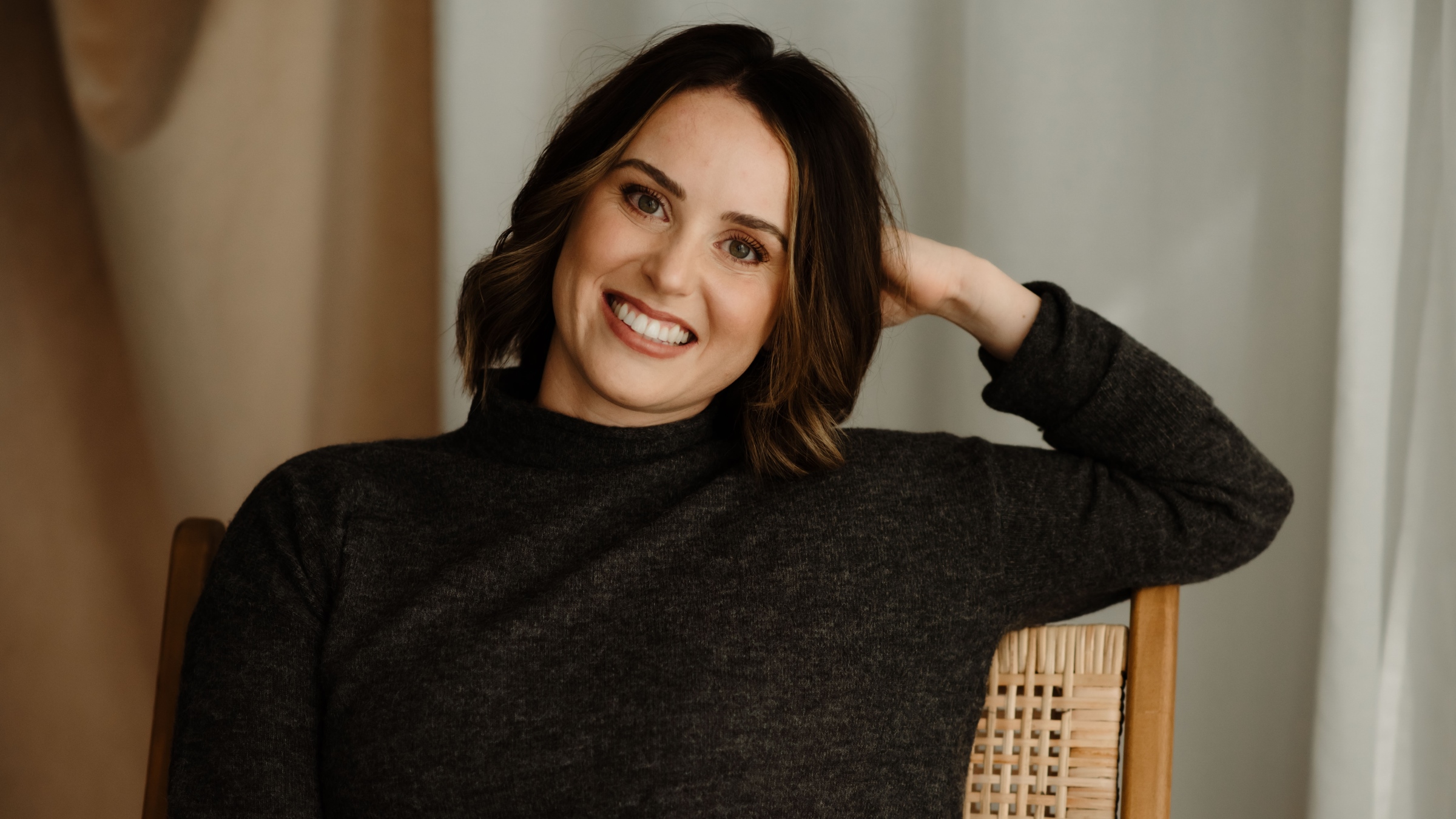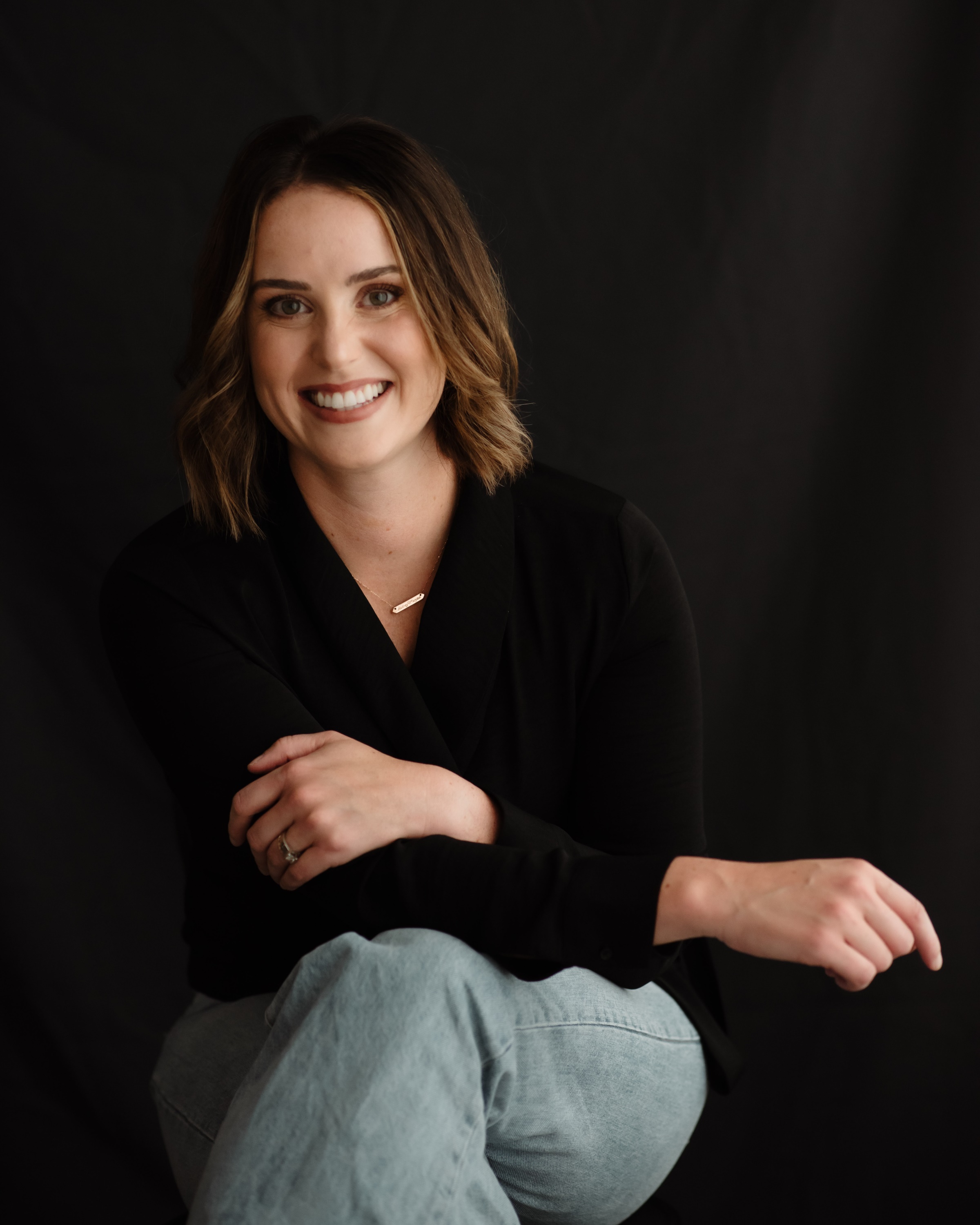Sandra Stabel, '18 MBA
Jenna Marynowski - 16 October 2023
Sandra Stabel, ‘18 MBA, has had a career ranging from front-line healthcare delivery to government, the start-up space, and now a national nonprofit organization. While improving the health system by day, she completed her MBA at the Alberta School of Business part-time and graduated ready to take on initiatives that transformed the health innovation ecosystem — which eventually led to her work today using digital technologies to improve health outcomes. Passion for improving lives has driven Sandra throughout her career; read on to find out more about the various ways she’s been able to put that passion into practice in this month’s profile.

You've had a wide-ranging career ranging from physiology, to government, to start-ups, and now to the nonprofit sector — can you tell us about how your career evolved to the role you're in today?
I graduated with BSc in Kinesiology from the U of A in 2007 and spent the first 10 years of my career as an exercise physiologist in sport and in healthcare. This experience provided me with important insight into front line health systems delivery. This led me to the realization that many of the challenges with our current health system stem from flawed incentives, governance, and business models.
While continuing to work full time in health system quality improvement, and continuing to see patients, I pursued a part-time MBA at the U of A. My goal was to learn additional frameworks, perspectives and business acumen to compliment my health systems experience. I figured these new tools would allow me to have a greater impact. During my studies, I was exposed to the world of entrepreneurship and innovation. After spending so many years making small, incremental, seemingly pointless improvements, the notion of learning quickly and breaking things resonated with me.
After graduating from the MBA program, I transitioned to a role with the Health Innovation team at Alberta Innovates. That role was a career pivot moment. I joined the organization at time where I was able to contribute to the redesign of many health research and innovation funding programs. In this role, I had the opportunity to work with everyone from large industry partners, to start ups, to health systems partners. My definition of what the health sector entails, grew exponentially, and my perspective of what solutions exist to solve societies greatest challenges expanded. Aspiring to a leadership role, I left to explore a few entrepreneurial and start up opportunities before landing in my current role with Heart & Stroke. In this role, I continue my pursuit of improving the health outcomes and experiences of people living in Canada, yet again, through another lens.
What kind of work are you doing today as the Director, Digital Health with the Heart & Stroke Foundation?
As the Director, Digital health at Heart & Stroke I am leading the strategy and implementation of innovative solutions that align to our strategic priorities. I work closely with our data analysts and learning experience designers to design and deliver digital solutions specific to hypertension, CPR, and women’s cardiovascular health. I’m also exploring new business models and use cases for a data registry. The philanthropic sector is experiencing an interesting shift where the demonstration of impact through innovative solutions and cross sectoral partnerships is not only valued it is expected by constituents. Cardiovascular disease is the second leading cause of death in Canada, and I love being in a position where there is a clear line of sight between the solutions I’m contributing to develop and improved health outcomes. It makes every day meaningful and purposeful.
What made you decide to pursue an MBA from the Alberta School of Business?
 I was feeling stuck as a clinician and quality improvement facilitator. I didn’t feel like I had the tools necessary to make the impact I wanted to make. I had many conversations with mentors as I debated between an MPH and an MBA. Ultimately, I decided on an MBA because I wanted a unique perspective and skills that could be transferable across multiple sectors. Business acumen is probably the most transferable set of skills anyone could gain. I also wanted to take a local, in person, program so I could build meaningful connections with people in my community.
I was feeling stuck as a clinician and quality improvement facilitator. I didn’t feel like I had the tools necessary to make the impact I wanted to make. I had many conversations with mentors as I debated between an MPH and an MBA. Ultimately, I decided on an MBA because I wanted a unique perspective and skills that could be transferable across multiple sectors. Business acumen is probably the most transferable set of skills anyone could gain. I also wanted to take a local, in person, program so I could build meaningful connections with people in my community.
What was the experience of doing your MBA like? What are some of your favourite memories?
It was both challenging and deeply rewarding. My prioritization skills, critical thinking abilities, and work ethic were challenged to their core. I also experienced a deep level of gratitude and pride for having the opportunity to stretch my thinking and expand my abilities in such a meaningful way. Three of my most meaningful memories were:
- As part of a business ethics class, we were asked to come up with a question or statement that might allow us to think through an ethical issue. Mine was “Don’t F*** up!”. This became a running joke among classmates for many semesters after. It’s still my mantra.
- I had my first daughter halfway through the program. During my leave from work, I continued to take classes. I remember taking a Women in Leadership class where I had to leave halfway through class to pump. I remember thinking “if this isn’t women in leadership, I don’t know what is”, as I listened to mooing of my breast pump in the circa 1960s bathroom of the business building.
- My favorite part of the whole program was the Silicon Valley study tour. We went to San Francisco and Seattle and toured the headquarters of companies like Amazon & Microsoft. We “borrowed” bikes and went for a joy ride on the Google campus. While we were visiting with MBA students at Stanford, I scheduled my interview with Alberta Innovates. I then did my interview, virtually, from the hotel after being mock interviewed in the hotel lobby by classmates and business school staff. It was an incredible experience. I had the realization that we can sometimes think small and be insular in our little Edmonton world. Exposure to the world of unicorns and 100x growth makes you realize that there is power in daring to think bigger.
You seem very passionate about innovation in the digital health realm — what excites you about where the industry is at today?
I think I’m just passionate about improving lives. We all know, healthcare is in desperate need of disruption. I believe that through thoughtful codesign and implementation, innovative technologies along with important paradigm shifts, stand to improve health equity, access to care, quality of life, health outcomes, and ultimately, even longevity. Isn’t that something we can all get behind?Do you have any advice for alumni (or future alumni) who may be looking to pursue entrepreneurship, or intrapreneurship within an organization, as a pivot from their current career path?
Just do it. Fail. Get back up. Try again. Break something. Make a difference. Ultimately, you’ll chart your own path, and that’s something you can really be proud of.
Subscribe to UAlberta Business
Become part of our community. Get the latest news and event information from the Alberta School of Business in your inbox every month.